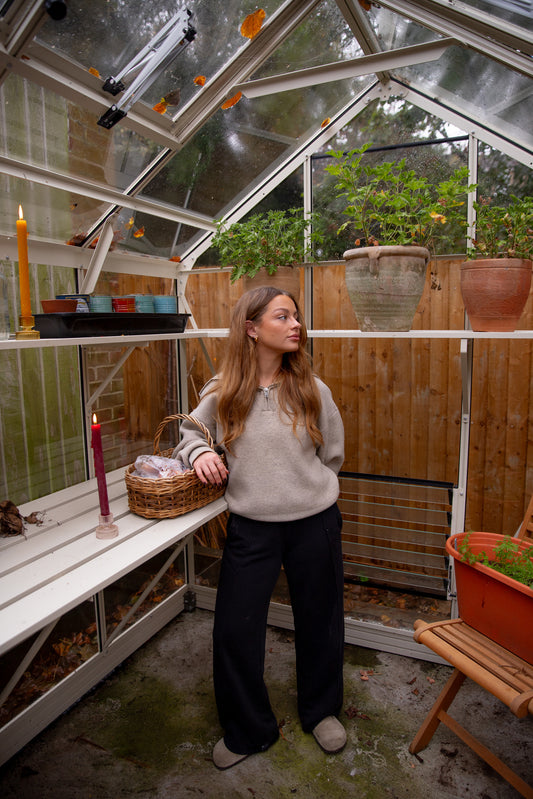Sound strange? But we’re serious. You might have noticed that mushrooms, mycota or fungi as they’re also known, suddenly seem to be everywhere. From restaurants to runways, they’ve been spotted adorning slip dresses, knitwear, jewellery and even in music videos over the last few years...
Fungi go into producing some of our daily food and drinks (think cheese, bread and wine), as well as being used for medicinal and environmental purposes. Mushrooms have become extremely topical in recent years, but research into their superpowers was being conducted for decades before their current popularity. It then seems strange that we actually don’t know that much about them, and there is so little conservation for them globally. This Black Friday, we’re partnering with the Fungi Foundation as part of our commitment to 1% for Planet and donating £10 per order to the organisation to help to protect and preserve these incredible organisms.
Who are the Fungi Foundation?
The Fungi Foundation is the first non-profit organisation dedicated to the study and conservation of fungi. Due to global lifestyle changes, climate change, pollution, and habitat loss, as well the use of fungicides, the world is at risk of losing thousands of species of fungi along with the animals and plants associated with them. The Fungi Foundation have a mission to expand their understanding and increase awareness for fungi. They aim to preserve and safeguard fungi to help regenerate our planet and protect our people for future generations.

Why should we care about and look after fungi?
Fungi are carbon reservoirs of nature, that play a fundamental role in the prevention of accelerated climate change. They receive carbon dioxide from trees through their roots, so carbon is kept in the soil and not in the atmosphere. Through decomposition, fungi recycle organic matter on Earth by emitting enzymes that break down compounds like carbohydrates and proteins into simpler components with the release of energy. These fungal decomposers absorb a small amount of nutrients for their own use and the remainder is absorbed by the surrounding soil, air and water. This role in the ecosystem is vital for the recycling of this matter. Without this fungal symbiotic activity, all the nutrients from dead animals and plants would be unavailable for use by other organisms and life as we know it would not exist.

Uses of fungi
Most of us have heard of “magic mushrooms”, and because of their use outside of clinical research, they’ve a bad reputation in the past. Psilocybin is a well-known psychedelic present in over 100 species of mushrooms, and it can do more than just make you trip. Many scientific studies have discovered that psilocybin could be used to treat anxiety, depression, addictions, and PTSD. Using psilocybin in tandem with psychotherapy treatments has shown a significant improvement for people experiencing these conditions, including a long-term effect and remission. Whilst these trials are still small and ongoing, they have taken the term “magical mushrooms” to another level. Fungal biodiversity is currently unknown, and with research, there is world of possibilities in the future of bioactive fungal products that could potentially save lives.
As well as being a crucial part of the ecosystem life cycle, fungi could contribute to a more sustainable fashion industry. Mycelium is a safe, durable alternative to animal leathers and suedes, as well as plastic used in hardware and packaging. Luxury brands like Hermes and Stella McCartney have proved to be front runners in starting to include this material into their collections, with the hope that others follow suit. Produce derived from Mycelium are biodegradable and require less water and land resources to be produced, making it a more responsible choice for the future of fashion.
Read more about the Fungi Foundation here.
Read our interview with Fungi Foundations co-founder, Giuliana Furci.










